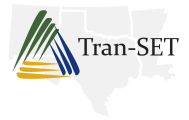Document Type
Report
Publication Date
8-2022
Abstract
The construction of highway infrastructure has devoted significant resources towards e-Construction to reduce the paperwork and automate the tasks in daily operations. Electronic Ticketing (e-Ticketing) is one such component of e-Construction that aids in the digital transfer of material tickets such as asphalt and concrete which accounts for more than fifty per cent of construction costs. Despite the benefits of e-Ticketing, many state departments and agencies are unwilling to transition into this technology. No studies have identified the cause of the delay in the implementation process, developed a framework to comprehend the platform's full potential, quantified savings, and suggested strategies for overcoming limitations. Therefore, this study aims to (1) Indicate inefficiencies in the conventional paper ticketing framework and identify suitable technology to overcome the inefficiencies. (2) Identify benefits, quantify the reduction in inspection staff and time savings incurred by implementing e-Ticketing technology. (3) Develop a multi-criteria decision-making model for implementation of e-Ticketing platform in the perspective of state DOTs and general contractors. (4) Identify and rank the major limitations in the process of implementing e-Ticketing technology and suggest suitable strategies to overcome them. To achieve the study's objective, review section is followed by a semi-structured interview and survey results. Based on the survey responses collected from 20 state DOTs, the study categorized the critical effectiveness indicators into 3 categories and ranked the operational challenges using the Relative Importance Index. The study analyses the critical effectiveness indicators (CEIs) of e-Ticketing technology and presents a fuzzy index-based decision-making model for evaluating the adoption priorities. A comparison was made between the required number of inspectors prior to and after the implementation of e-Ticketing, and it was found that projects requiring multiple inspectors could reduce their workforce by 25% by implementing e-Ticketing. The study's findings will assist practitioners with an assessment tool to gain insights relating to priority levels in implementing the e-Ticketing technology.
Recommended Citation
Kermanshachi, S., & Subramanya, K. (2022). Effectiveness Assessment of E-Ticketing Technology in Construction of Transportation Projects. Retrieved from https://repository.lsu.edu/transet_pubs/150


Comments
Tran-SET Project: 21TSUTA02